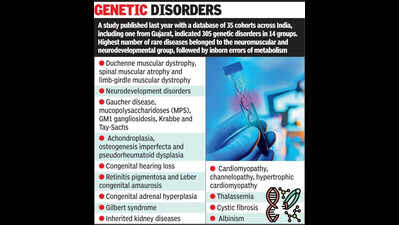- News
- City News
- ahmedabad News
- ‘Extended resection lowers Lynch-related cancer risk’
Trending
‘Extended resection lowers Lynch-related cancer risk’
Ahmedabad: A global research comprising of 8,438 patients suffering from colorectal cancer caused by Lynch Syndrome has indicated pathways for ensuring less chances recurrence. A cohort from Ahmedabad represented India in the study.
Lynch Syndrome, also known as hereditary nonpolyposis colorectal cancer (HNPCC), is the most common hereditary cancer condition that significantly increases the risk of developing colorectal cancer and other cancers.
You Can Also Check: Ahmedabad AQI | Weather in Ahmedabad | Bank Holidays in Ahmedabad | Public Holidays in Ahmedabad
The condition often affects multiple generations, and in the Indian context, some studies estimate the prevalence to be one in 300 persons. More importantly, about 10-15% of colorectal cancers in India are caused by the condition compared to 2-10% in Western countries. The cancer has a high relapse rate of 17-50% in later stages.
"It is one of the biggest studies in connection with Lynch Syndrome, comprising over 65,000 person-year follow-ups and surgical data of 908 patients. The study started with the question of what is the best surgical approach after the first tumour – should the onco surgeons go for segmental resection or extended colectomy to reduce chances of relapse," said Dr Sheth.
He added that the study's findings indicate an equal or higher risk of developing metachronous colorectal cancer for those who already have a history. It challenges the earlier notion that screening and resection are enough. "Extended resection significantly reduces the risk of metachronous cancer (across all Lynch Syndrome genes) compared to segmental resection. There is no survival benefit in either surgery group, but there are benefits in fewer operative procedures, reduced surveillance burden, and better quality of life," said Dr Sheth.
The take-home message, said experts, for the surgical guidelines is to ensure that if Lynch Syndrome is detected pre-operatively, the chances of metachronous cancer should be discussed.

About the Author
Parth ShastriEnd of Article
Follow Us On Social Media








